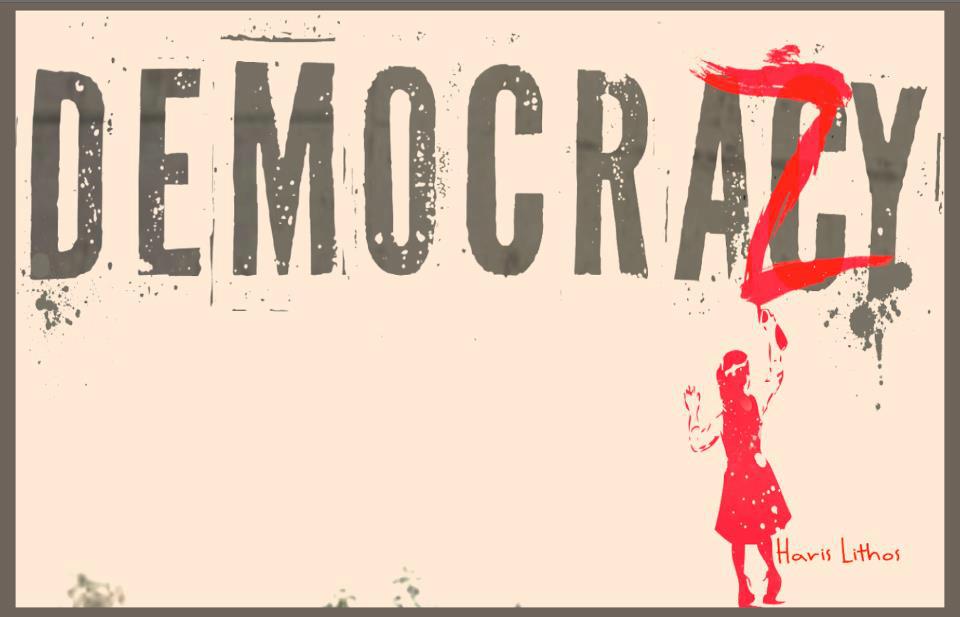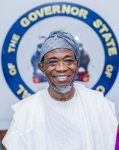A Bleeding Democracy


When the new dispensation that heralded the fourth Republic of Nigeria’s democratic era came in 1999, not a few persons were expectant of speed of economic recovery and democratic dividends. Nigerians thought they were already in their halcyon days since the protracted military rule of 16 years of political oppression, economic depression, and social repression had finally collapsed.
The three major political parties of the day all came up with slogans that inspired hope and confidence in the country. People’s Democratic Party (PDP) brandished ‘power to the people’ All People’s Party(APP) swanked ‘one Nigeria’ while Alliance for Democracy (AD) flaunted ‘justice, peace and progress.’
The youth who bore the greater brunt of military brutality and crudity wholeheartedly embraced the development. There were before now remonstrations and demonstrations across the nation’s Ivory Towers against continued military dictatorship.
Although the democratic ethos of the Western world was still sketchy in our climb the tragedies which followed avoidable carnage especially in the Northern part of Nigeria evoked elements of pathos in those early days of our democratic experience. There appears to be no respite since.
The intention here is not to disparage our democracy, though many would prefer to call it a civil rule. It is not only baleful, there is also a handful of noticeably marked differences in the policy. For instance, there is a reasonable press freedom. Liberalisation of the economy, deregulation of the telecommunications sector, new salary structure for civil servants, the war against corruption and others are some of the gains.
Whatever Nigerians thought were dividends to consolidate were later overshadowed by both unimaginable physical and economic insecurity. It was during this time that Alhaji Ahmed Sani Yerima the then governor of Zamfara State smuggled the Sharia legal system into the country in February 2000. This was done in utter disregard of the Constitution which entrenches the secularity of the nation. It posed a serious threat to the corporate existence of the country, but surprisingly, its allure, like a devastating tsunami spread to the extent that 12 northern states fully embraced it while others had restrictive application. The development led to widespread riots in Kano, Kaduna, Niger, Taraba states and others, resulting in great fatalities.
With the introduction of Sharia, the consciousness of fundamentalism was already aroused among the peasant majority Muslims. Moved by the spirit of the time the late Mohammed Yusuf galvanised youths in Borno State and ensured electoral victory for the then governor of Borno State, Ali Modu Sheriff, but after a while, he could no longer enjoy the patronage of the incumbent. Things started going awry as they became antagonistic to the government of the day and events gradually snowballed into what is now known as the dreaded Boko Haram sect. The story of Boko Haram’s blaze of basilisk wantonness which has left many people dead, displaced, orphaned, widowed and destitute is reserved for another day. But what is shocking is the recent revelation by the governor of Borno State, Kashim Shettima, that over a hundred thousand people have been killed by the sect while about two million have been displaced and that the cost of the destruction is estimated at $6 billion.
While the North has its own contributions to our harrowing democratic experience, the South particularly the South –South has its own share. The boys who were used and dumped by politicians after procuring their victories, bounced back to express their grievances with a massive attack on oil infrastructure, militancy and kidnapping.
Today, the impact of their activities can be felt when one considers the statement made by the Group Managing Director, Nigerian National Petroleum (NNPC), Mr. Maikanti Baru, that the government lost up to seven billion dollars (N2.1trillion) in 2016 due to militancy. This excludes deaths, personal losses and pollution arising from oil spillage from numerous bombing of oil facilities and the general insecurity in the area.
Also, our electoral process has been bedeviled by the flagrant travesty of the process. Heavy militarization of elections does not prevent the callous destruction of lives and property. According to a post election report by Centre for Democracy and Development, more than a hundred people were killed during the 2015 election alone. And this has continued to be our lot from the inception of this republic.
Apart from these sanguinary tales that have always trailed this expensive democratic sojourn, there is apparent profligacy and malfeasance in official conduct of business.The fourth republic has continued to parade a congeries of self-serving and greedy leaders whose only reasons for being in power is to cart away public resources for personal aggrandizement. Nigerian political office holders are reputed to be the highest earners in the world while the civil servants are among the lowest paid. Our dilapidated social infrastructures stare at us menacingly, crying for attention. Today, many things may be on our governors’ priority list but certainly not the civil servants, and the pensioners’ salaries. Many have met their untimely death while others are languishing in sundry deplorable conditions.
We cannot continue to pretend that all is well, with military personnel being deployed in 30 out of 35 states amid various agitations and growing tensions in the land. There are palpable discontent and visible ominous signs in the air and this calls for a convocation of all stakeholders to redefine our continued corporate existence as Nigerians.
Source: The Guardian








